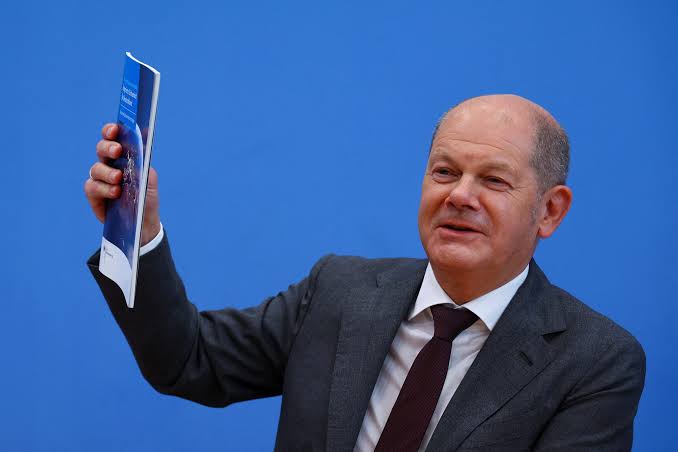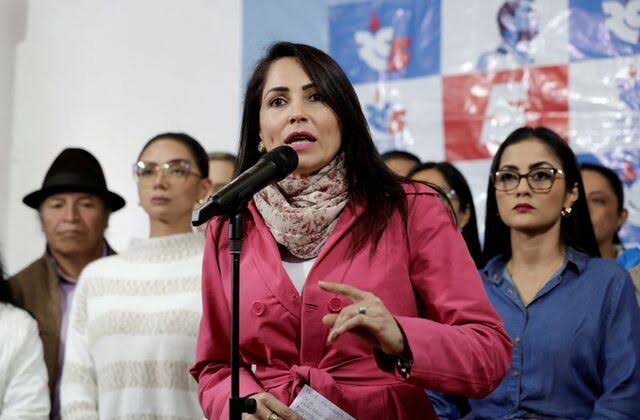Germany’s prospective chancellor did not wait for the final election results on Sunday to signal a new chapter for Europe. Friedrich Merz criticized the US for its indifference towards the continent’s future, questioning the viability of NATO and calling for Europe to strengthen its own defense capabilities.
Such rhetoric from a close ally of the US, particularly from Friedrich Merz, who is regarded as a strong supporter of Atlanticism, would have been unthinkable just a few months ago.
This represents a significant transformation. While it may sound exaggerated, the current dynamics of transatlantic relations are truly unparalleled in the 80 years following World War Two. Major European nations have been profoundly unsettled by the Trump administration, which has hinted that it might withdraw the security assurances provided to Europe since 1945.
“I never imagined I would need to express something like this on a television program, but given Donald Trump’s comments last week… it is evident that this administration is not overly concerned about Europe’s future,” Friedrich Merz stated during a debate after the election on Sunday.
My top priority will be to enhance Europe swiftly so that, gradually, we can truly attain independence from the USA,” he stated.
Merz suggested that the urgency of the situation makes him uncertain whether the leaders of the transatlantic alliance will still be discussing NATO in its present form during the summit in June, or if they will need to establish an independent European defense capability much sooner.
Notably, the upcoming chancellor compared Donald Trump’s America to Russia, which is broadly considered a security risk to Europe overall. “We are facing immense pressure from two directions, and my foremost goal now is to foster unity in Europe,” Merz remarked.
The UK prime minister is set to visit Washington on Thursday, following French President Emmanuel Macron’s visit there on Monday. Friedrich Merz subtly indicated a sense of FOMO—fear of missing out. Ideally, Germany should also be present this week, he mentioned. Berlin is considered one of Europe’s Big Three powers, alongside France and the UK.
With the United States and Russia engaging in bilateral discussions about, but not including, Ukraine, it appears to be a global revival of major power politics.
However, Germany has been noticeably absent from the European and global scene for some time now. The outgoing government was weakened and sidetracked by intense internal conflicts, which frustrated German voters—who desired immediate attention on economic issues and migration—as well as European allies, who were calling for action on Russia, security, and defense.
Merz emphasizes that a crucial goal for Germany is to reintegrate into the international community.
The nation is already the second-largest provider of military aid to Ukraine, following the US. Merz aims to sustain that assistance, but, unlike France and the UK, he has been hesitant about the idea of deploying troops to Ukraine to support a potential ceasefire there.
Given Germany’s previous tendencies—to procrastinate at each stage of support for Ukraine—and despite that, ending up contributing more aid than any of its European counterparts, a current ‘No’ doesn’t necessarily imply a perpetual ‘No’ regarding the commitment of troops or involvement in any prospective European “reassurance force” in Ukraine.
The primary concern for German soldiers currently lies with the 35,000 American troops stationed in their country, which provides them with a sense of security. It is quite rare for foreign policy to dominate voter concerns during election periods. However, this weekend in Germany, alongside issues like the economy and migration, numerous voters expressed anxiety about maintaining peace in Europe and a pervasive sense of insecurity.
In November, Germany’s interior ministry announced plans to compile a list of bunkers that could serve as emergency shelters for civilians.
Although Ukraine is geographically distant, many Germans perceive a significant threat from Russia for two main reasons.
Read more: Germany’s Merz Faces Tough Talks with a Potential Coalition Partner.
First, the substantial military aid that Germany has provided to Ukraine has raised concerns. The far-right party, Alternative for Germany (AfD), advocates for a “Germany First” approach, urging Berlin to distance itself from Kyiv and restore ties with Russia, a strategy reminiscent of Donald Trump’s rhetoric, as the party often highlights.
Second, there is a prevailing belief among Germans that if Russia sought to genuinely destabilize Europe, it might consider launching a long-range missile strike against one of the major powers.




